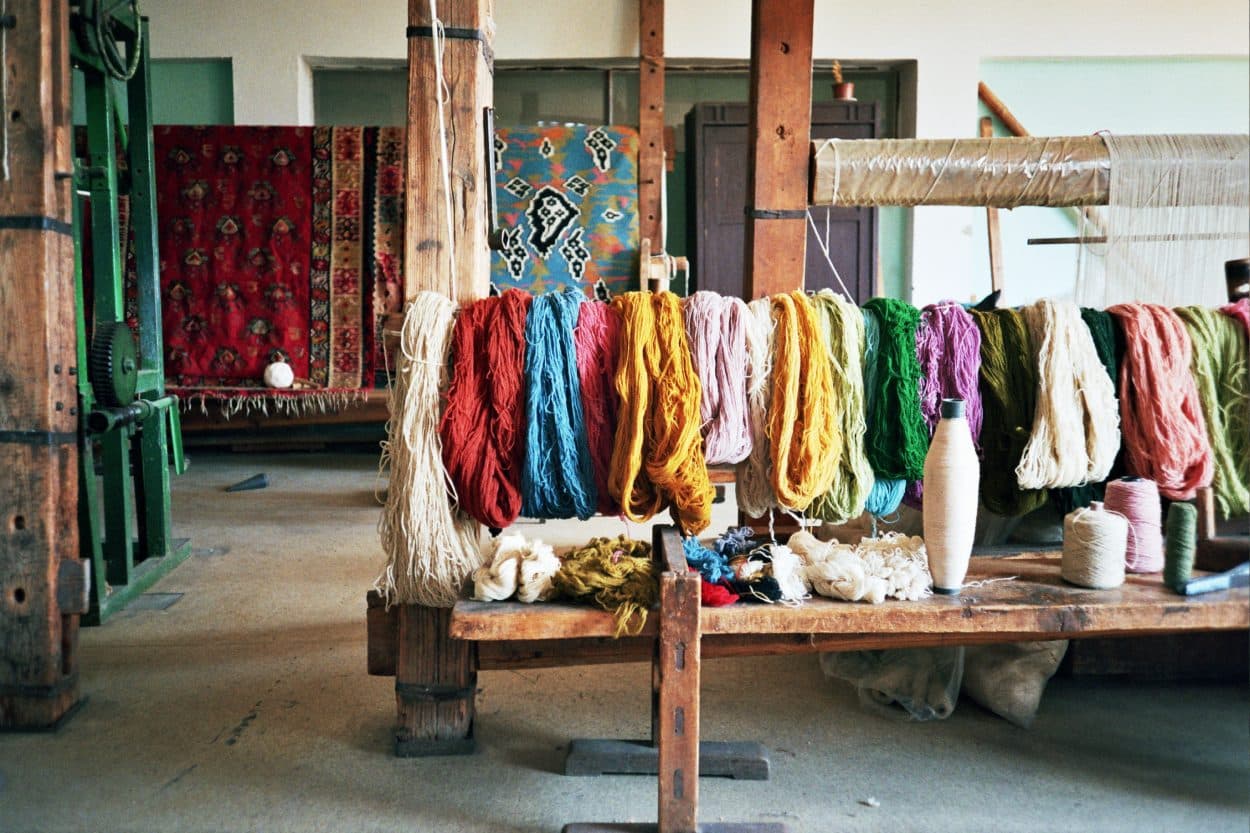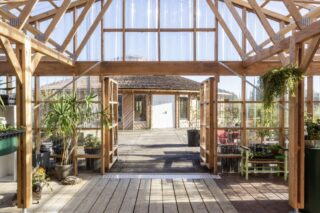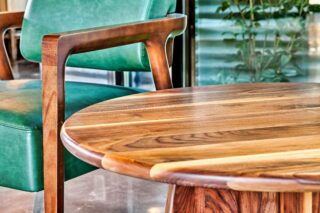Using homegrown materials and sustainable production techniques, a fresh generation of Balkan creators brings design-driven products to a worldwide audience.
Boasting a strong tradition of hand weaving and woodwork, the Balkan countries saw a decline in their traditional crafts in favor of mass-produced homeware. To allow their cultural heritage to live on, a young generation of local designers is now rethinking everyday objects, incorporating visual aesthetics that appeal to contemporary design aficionados worldwide.
This has led to the development of various enterprises. Slovenian/Bosnian project Kobeiagi Kilims is already working on its third collection of rugs and pillows, and the more recently emerged Serbian brand Folkk offers carpets, pillows and wooden products.
A Tale of Revival
Fascinated by the skills of weavers they met during a trip to central Bosnia, Ivana Blaž and Nina Mršnik, an architect from Bosnia and a designer/illustrator from Slovenia, founded Kobeiagi Kilims in 2014. The two creators seek to open a new chapter in the revival of the Bosnian kilim, a traditional hand-woven wool fabric which can be used as a rug, a blanket or to cover a bed or sofa, as well as to decorate walls and windows.
Mršnik told ArchiExpo e-Magazine that every part of their kilim production process, including sourcing wool and natural dyes, makes them truly local.
“We believe that its high quality, combined with a freshened and unique design, enables the kilim to rise above the huge supply of cheap carpets of mass production.”
Two years prior, in 2012, a mix of creatives and businessmen launched the Nova Iskra Design Incubator. This prompted them to create a business venture which would promote local crafts and sustainable practices. Their Folkk brand initiative began in 2016 when, after a contest with twelve design teams, they decided to put forward the work of Tamara Švonja, Studio Antipod and Emir Šehanović.
“For an artist who is inspired by the local traditions and practices, it was the perfect initiative to be involved in,” artist and designer Šehanović told ArchiExpo e-Magazine.
“This was an opportunity for me to give back and contribute, in my specific way, to the tradition that has given me so much.”
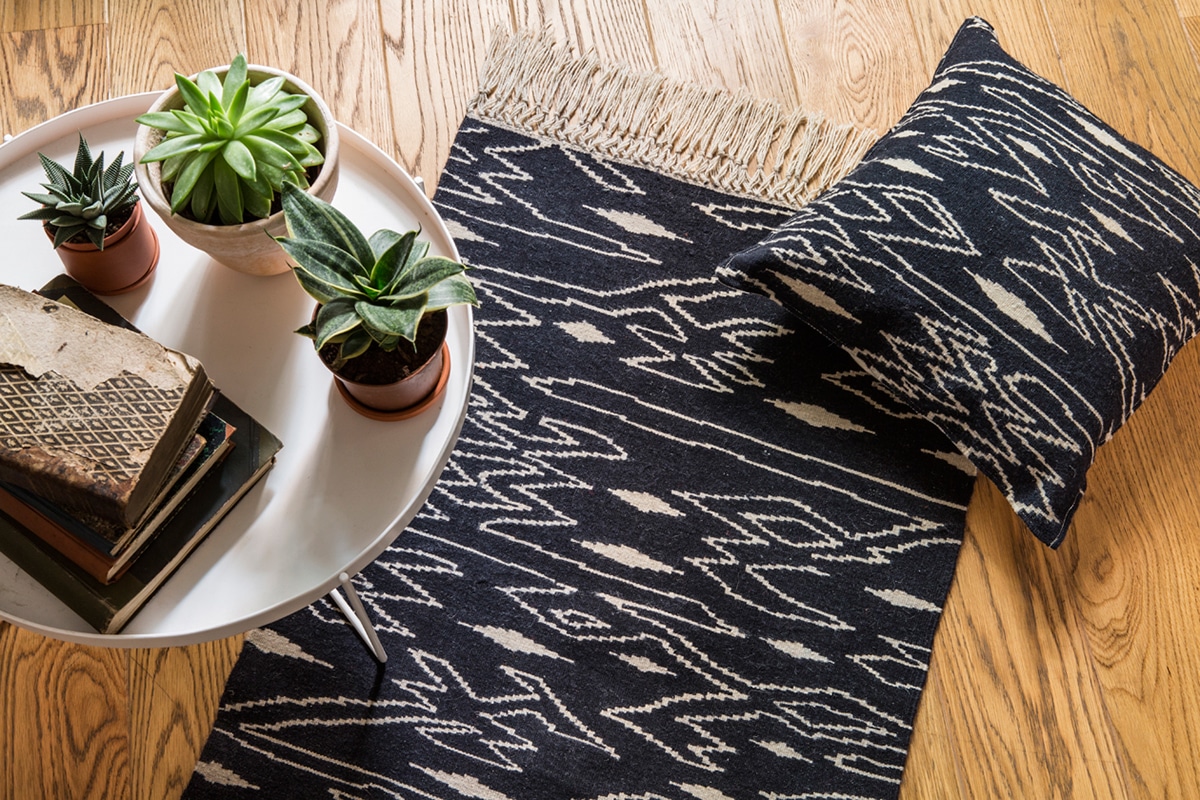
Emir Šehanović for folkk
A Modern Twist
Hand-woven by women in Bosnia, Nina and Ivana’s kilims—such as Stana and Neda, their most popular models—play with shades and patterns inspired by contemporary life and fashionable color palettes and themes. Mršnik said that in the life of a designer:
“There is surely a time when you question making new objects, turning to the past to find fantastic products that already exist but are neglected because they ‘don’t fit’ today’s time period.”
“So, we identified [the kilim] and are working on making it appealing to today’s buyers. The quality of the product remains as it was before we came into the picture,” she continued.”
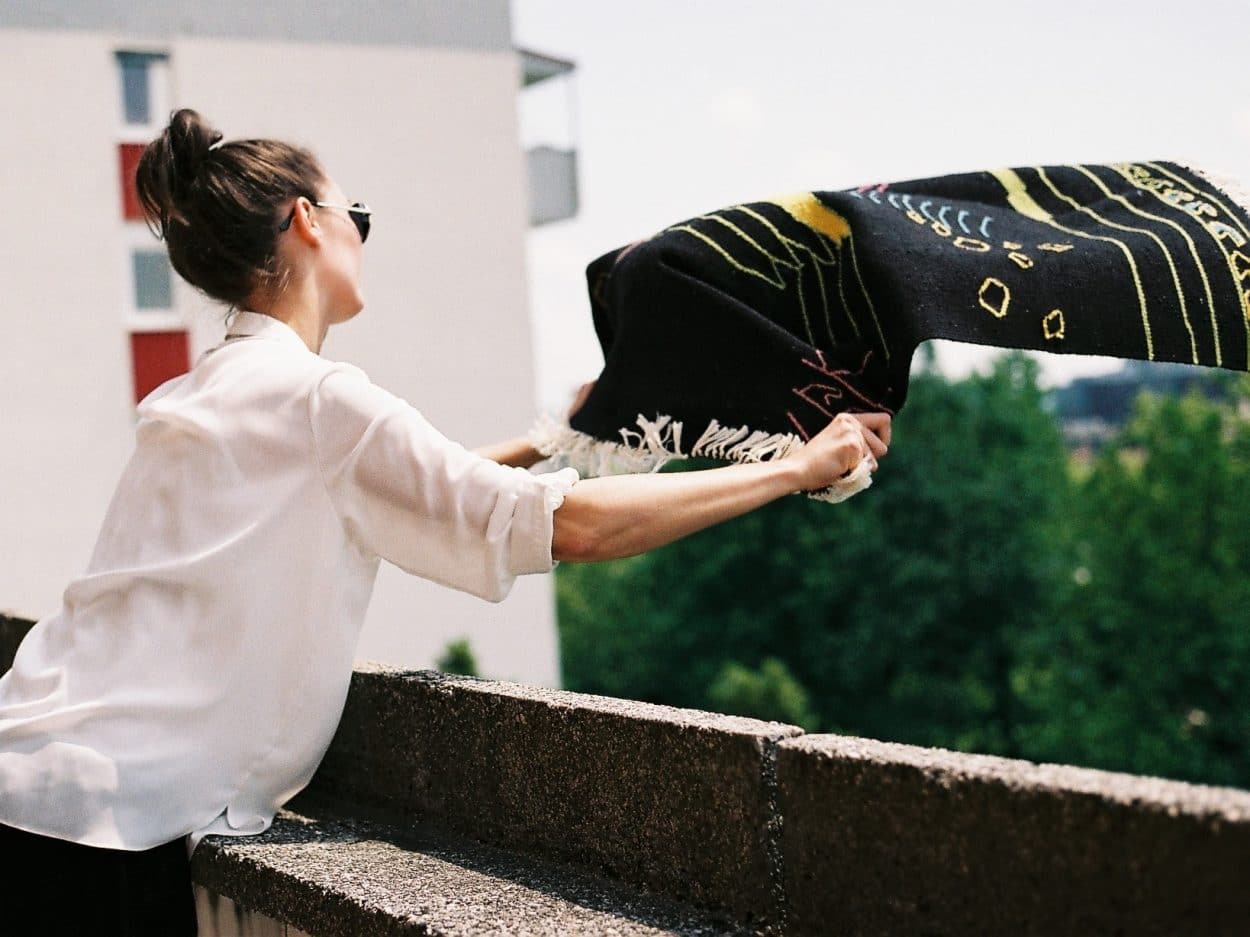
Courtesy of Kobeigai Kilims
In line with the connection between ancient craft and modern technology, Emir Šehanović says he blends traditional patterns with a modern ‘glitch’ aesthetic. His five original patterns for Folkk’s rugs and pillowcases also are woven by women in rural communities.
Exploring a different facet of Serbian craftsmanship, designer Švonja rose to the challenge of adapting centuries of traditional woodwork to fit modern living. Handcrafted by local carpenter Milan Blagojević, the Tapa board she designed for Folkk surprises with its contemporary lines.
Švonja said that the wood defines beauty on its own, adding:
“Its minimalistic look, simple shape and small details give the product a modern twist.”
A Social and Sustainable Venture
In combining social enterprise, sustainable production and stunning design, the two ventures have managed not only to preserve centuries-old crafts, but also to empower the local community. They already count customers from all over Europe, as well as Peru, the USA, Canada, Australia and the UAE. Balkan crafts are tastefully making their mark on the design world.
“Local material and many years of craftsmen’s experience are the most important sustainability points that give Folkk special value. It can be seen in all Folkk products,” explains Tamara Švonja.
“I prefer when sustainability is logically included in the product rather than being forced at all costs.”
